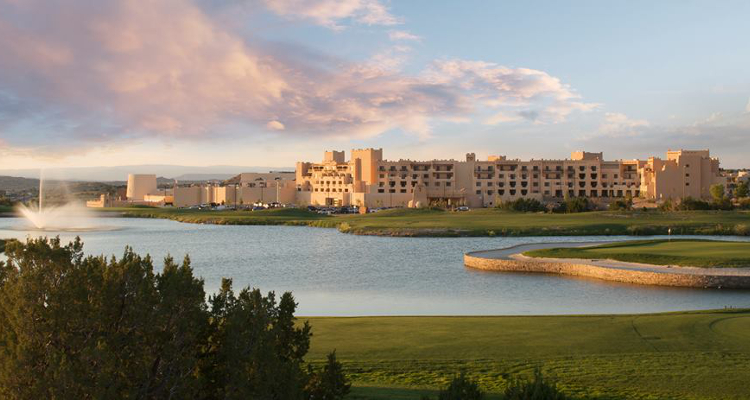In New Mexico, the casino-operating Pojoaque Pueblo has reportedly given up its over two-year battle with the administration of Governor Susana Martinez by agreeing to sign a new Class III gaming compact that will entitle the state to a bigger share of its gambling revenues.
According to a report from the Santa Fe New Mexican newspaper, the decision by the federally-recognized tribe follows the United States Court of Appeals for the Tenth Circuit in Denver unanimously ruling in late-April that the Pojoaque Pueblo must negotiate a new gaming compact with the western state rather than the United States Department of the Interior.
Although the Pojoaque Pueblo had earlier suggested that it would be prepared to take its fight all the way to the United States Supreme Court, tribal Governor Joseph Talachy reportedly declared on Thursday that such an action would have severely strained the tribe’s financial resources.
The Santa Fe New Mexican reported that Talachy also explained that state officials had threatened to bring regulatory actions against its vendors, which had prompted some to stop servicing games at its two casinos.
Finally, Talachy reportedly told the newspaper that the April ruling had prompted federal officials to set a September deadline for the tribe to have agreed a new gaming compact. This had purportedly raised the real prospect that the United States District Court for the District of New Mexico could have taken action against the Pojoaque Pueblo for any failure to reach a revised deal with the state.
“It’s kind of a terrible game the state played and it was done intentionally to squeeze us exactly into where we are now,” Talachy told the Santa Fe New Mexican. “It’s sad they’re trying to subsidize their faults on the backs of the tribes.”
The Pojoaque Pueblo is responsible for the Buffalo Thunder Resort and Casino just north of Santa Fe along with the nearby Cities of Gold Casino. It had allowed its previous Class III gaming compact with the state to expire in June of 2015 due to a belief that the requested revenue-sharing portion of the revised deal was too high and represented an illegal tax.
The tribe later moreover accused the Martinez administration of negotiating in bad faith before asking the United States Department of the Interior via its Bureau of Indian Affairs agency to intervene and approve new procedures that would allow it to continue offering casino gaming.
The Martinez administration countered by taking the Pojoaque Pueblo and the United States Department of the Interior to court and successfully arguing that the tribe’s gambling operations were illegal because the provision of a compact is mandated under the stipulations of the Indian Gaming Regulatory Act. It additionally asserted that any such deal cannot be imposed by the federal government over the objections of a state.
The Santa Fe New Mexican reported that the new gaming compact will see the Pojoaque Pueblo give the state 10.5% of its net gambling revenues, which is up from 8% under the previous deal.
“We expect this to bring the issue to a close,” Martinez spokesperson Joseph Cueto told the newspaper. “As we have said all along, we’re simply asking that the Pojoaque Pueblo play by the same rules as other New Mexico gaming tribes.”



